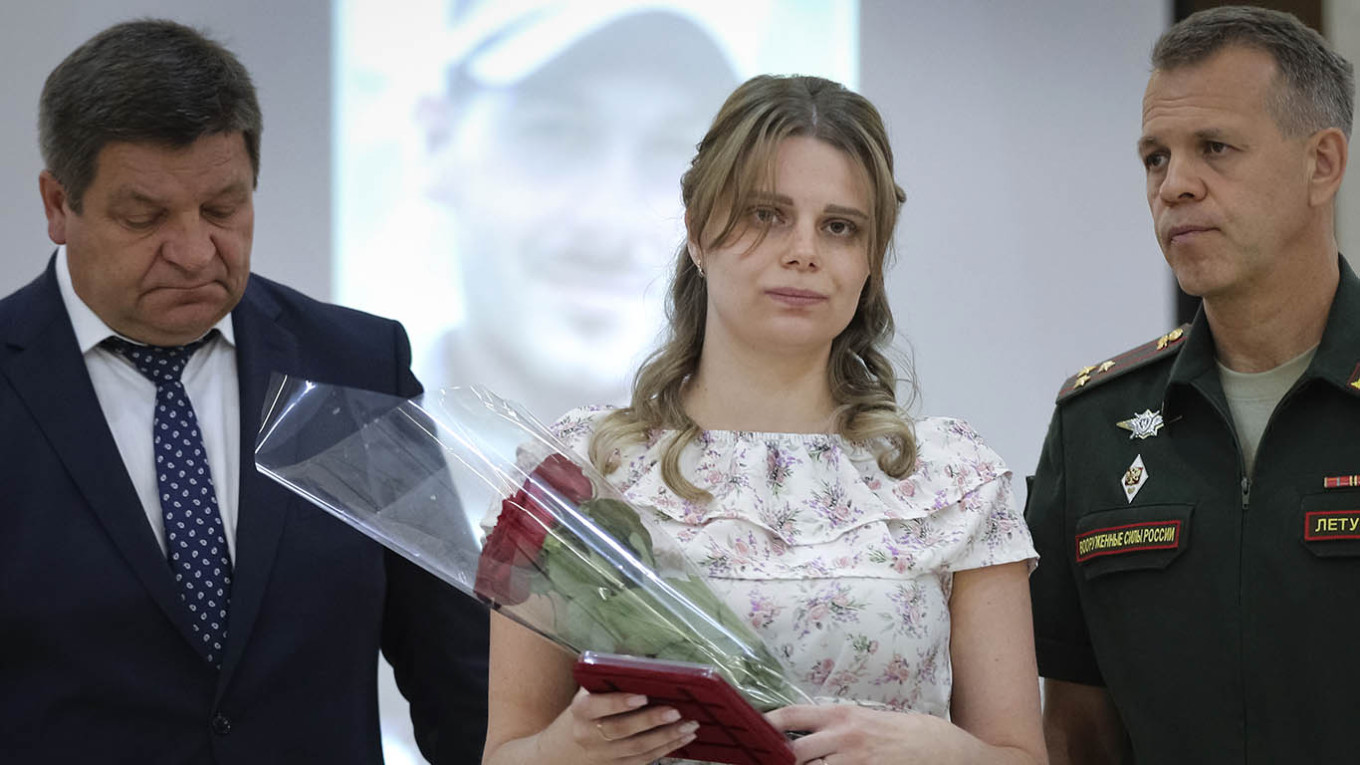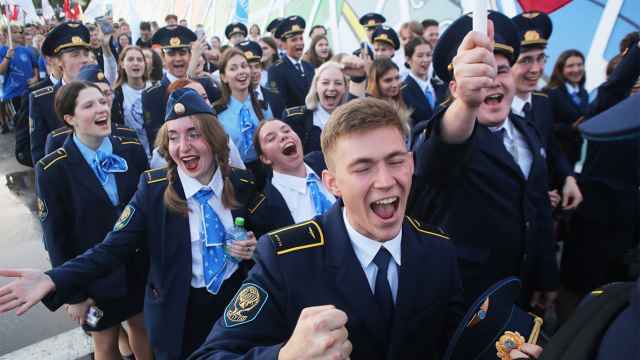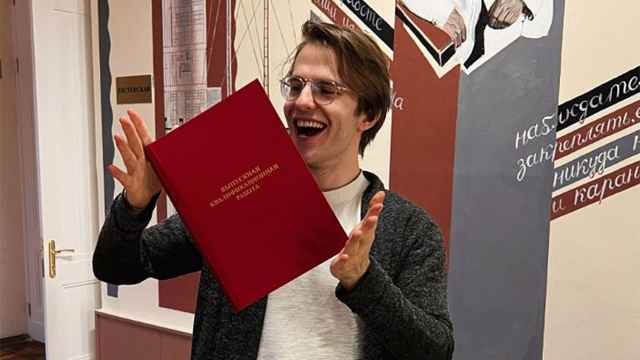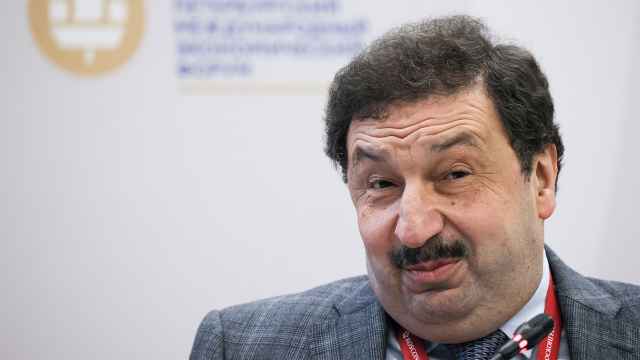Casualties at the front are high, the war is becoming more expensive, money is running low, and the state is inventing new perks — anything to keep the flow of contract soldiers from drying up. If the State Duma passes a new bill in its next session, widows — on top of receiving large compensation for their husbands’ deaths — will have priority when applying for state-funded places.
If they struggled in school, that will no longer matter: their final exam results will not be taken into account. This is yet another way that Russia imitates social mobility, but actually tries to increase their control.
The point is the same as it has been for decades. Benefits have always been used as tools of propaganda and manipulation for various groups of citizens. First in the U.S.S.R. and then in Russia. Officially, these benefits are about recognizing service and compensating for hardship. But there is more to it than that.
A repressive, mobilization-driven state — such as the Soviet Union was and as Russia aspires to be — rests on the exploitation of its citizens. This is because the money earned from selling natural resources goes mainly toward waging war against internal and external enemies. The shortage of what remains forces the government to devise schemes to distribute goods according to a citizen’s place in the hierarchy of state interests—something the history of deals between the people and the authorities in the “victorious people’s state” makes abundantly clear.
The U.S.S.R. dressed up many of its schemes to extract money from the population as ways to help them. In 1924 alone, there were three issues of government bonds — repeated again three years later when the New Economic Policy was ending.
Under Stalin, state loans became an annual way to shamelessly rob a disenfranchised and legally illiterate population. This was most true during World War II, when the slogan “Everything for the front, everything for victory” really did mean that “everything” would be oriented toward the war.
What did soldiers and their families get in return? Ordinary people rarely saw cash unless they were generals or senior officers who could support their families via “monetary certificates” (payments converted into ration cards, etc.). Rank-and-file soldiers got nothing of the sort. Being “placed on subsistence” was the most they could expect. Any talk of being compensated for one’s combat service or mortal risks was nonexistent. At best, there were decrees in May 1942 and January 1943 to retrain and employ war invalids under wartime conditions.
Under Stalin, war invalids were shipped off to Valaam and Solovki monasteries to keep them out of sight. It was not until Leonid Brezhnev’s era, when the symbolic primacy of the revolution started to fade from memory, that the Great Patriotic War was celebrated. Victory Day only became a holiday in 1965.
In 1978, the social category “participant of the Great Patriotic War” was introduced to grant veterans benefits and raise their pensions regardless of disability. The Soviet state badly needed this demographic to provide a base of grassroots support. It just realized too late: many who could appreciate such measures had already passed away after decades of hypocrisy and indifference.
Still, many veterans were alive and measures to strengthen their collective identity worked. From the mid-1960s, Brezhnev, a veteran himself, began expanding the range of benefits war invalids were entitled to, from shorter workweeks to priority housing.
Given the veterans’ advanced age, the focus shifted from retraining to better medical care. In the absence of meaningful personal benefits and with chronically low pensions, guaranteed (if not always good) medical care became a cornerstone of modern myths about Soviet social policy.
Today’s preferential-education measure is reminiscent of steps first taken in 1945. The demobilization of many young men led to the abolition of competitive entrance exams: if a veteran passed the entrance tests, he was admitted regardless of school grades or ranking. This helped thin out the “rotten intelligentsia” that had survived the Great Terror in evacuated universities. Alongside those who genuinely wanted to study came pragmatic and watchful types, quick to keep their overly cultured classmates — and especially professors — in line.
Participants in today’s war enjoy similar benefits to eighty years ago: they apply via a special quota and separate competition, fulfilling President Vladimir Putin’s thesis that they are the true elite of Russia. The logic of creating separate benefits for them works flawlessly, as veterans are firmly tied to the state by the military contracts they have already signed. As long as the state survives, they will be fine.
The state harbors no illusions that veterans of the occupation of Ukraine will study diligently. That is why the list of preferential categories in Russia is expanding rapidly to include their relatives. The Kremlin is not concerned about helping anyone, but about having a loyal column within universities that they can trust to keep the potentially problematic intelligentsia quiet.
Universities remain refuges for abstract thinkers and quiet dissenters. Wives and widows of veterans, admitted under preferential terms. will shift the makeup of these institutions toward the Kremlin’s favor. They will maintain a patriotic spirit, stamp out creeping pacifism, preventing threats from rearing their head. They will write denunciations, boost vigilance and block the spread of “dubious moods.” They will do the work of the Kremlin’s censors for them.
Benefits are thus a key mechanism of pacifying the population, especially while money for impactful payments remains. The cost of death benefits is nothing compared to the cost of war itself or even the pension a surviving veteran might receive in peacetime. God forbid he lives decades like a Kremlin hospital patient, draining state funds. When the hero is gone and the lump sum is spent on debts, a Lada Kalina and a trip to Sochi, one may as well take the opportunity to go to university.
Some widows will take the opportunity to retrain and some might even build careers. But that is not the point. Keeping the population loyal to the state still matters far more.
A Message from The Moscow Times:
Dear readers,
We are facing unprecedented challenges. Russia's Prosecutor General's Office has designated The Moscow Times as an "undesirable" organization, criminalizing our work and putting our staff at risk of prosecution. This follows our earlier unjust labeling as a "foreign agent."
These actions are direct attempts to silence independent journalism in Russia. The authorities claim our work "discredits the decisions of the Russian leadership." We see things differently: we strive to provide accurate, unbiased reporting on Russia.
We, the journalists of The Moscow Times, refuse to be silenced. But to continue our work, we need your help.
Your support, no matter how small, makes a world of difference. If you can, please support us monthly starting from just $2. It's quick to set up, and every contribution makes a significant impact.
By supporting The Moscow Times, you're defending open, independent journalism in the face of repression. Thank you for standing with us.
Remind me later.






